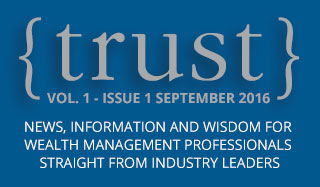Turning secrecy into transparency
By Stanley M. Joffe
 Once upon a time, as the world became increasingly globalized, it was easier for all taxpayers to move investments through financial institutions outside of their country of residence. Vast amounts of money were kept offshore and went untaxed to the extent that taxpayers failed to comply with their tax obligations in their home jurisdiction. The secrecy laws of Switzerland contributed to offshore tax evasion and became a serious problem for jurisdictions all over the world.
Once upon a time, as the world became increasingly globalized, it was easier for all taxpayers to move investments through financial institutions outside of their country of residence. Vast amounts of money were kept offshore and went untaxed to the extent that taxpayers failed to comply with their tax obligations in their home jurisdiction. The secrecy laws of Switzerland contributed to offshore tax evasion and became a serious problem for jurisdictions all over the world.
Since countries have a shared interest in maintaining their tax systems’ integrity, bank secrecy has led to bank transparency and the growth of new tax legislation by the OECD.
On May 27, 2015, Switzerland and the European Union formally signed the Agreement on the Introduction of Automatic Exchange of Information in Tax Matters (AEI), replacing the former agreement in effect since 2005. Switzerland and the 28 EU member states intend to collect account data from 2017 onward and exchange them on a reciprocal basis beginning in 2018. The agreement will also apply to portfolios where the account holder is a domicile company and presumably where the beneficiary is a UK resident non-domiciled.
If everything goes according to plan, the first reports will have to be sent in early 2018, covering 2017. Banks should take action without delay to produce the new regulatory reports, according to the Common Reporting Standard of OECD.
How will this AEI agreement impact the relationship between Swiss banks and clients who are EU residents? One key advantage is that it will de facto ensure their tax compliance.
On the other hand, issues of regularization of the past have not been addressed in this agreement. For EU residents who have yet to come clean with their own tax authorities, the situation is clear. Unless they can still avail themselves of an existing regularization procedure or Switzerland signs a specific tax agreement with a member country that contains such a regularization clause (such as the Amendment to the Double Taxation Treaty with Italy on February 23, 2015), they will be reported to their respective tax authorities without further ado.
Challenges ahead
It is essential to keep in mind that AEI is only an early step in a major process of aggiornamento for Swiss private banks, prompted by the marketplace evaluation toward tax transparency.
In order to retain clients who are EU residents, they will have to meet two challenges:
- Provide clients with country-specific tax reports – or at least generic reports of sufficient quality – for their tax returns
- Ensure the tax suitability/efficiency of the financial instruments in clients’ portfolios to achieve performance after tax
At this stage, AEI will be of no assistance whatsoever – because these two client services are no longer a matter of regulation…but of business. That is left to the banks themselves.
Finally, what is the net effect of this legislation? It is fairly safe to assume that it will become a model for Switzerland and other countries. (Perhaps even the United States!) After all, was it not the United States that set in motion the unbundling of the secrecy laws of Switzerland? The United States Department of Justice is having a field day in its demands of the Swiss.
Stanley M. Joffe is Chairman and CEO of Sterling Trustees.



